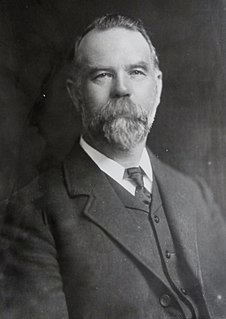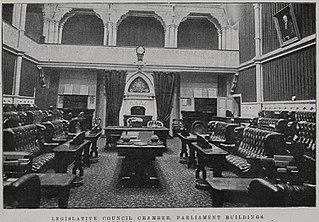
Sir Edmund Percival Hillary was a New Zealand mountaineer, explorer, and philanthropist. On 29 May 1953, Hillary and Nepalese Sherpa mountaineer Tenzing Norgay became the first climbers confirmed to have reached the summit of Mount Everest. They were part of the ninth British expedition to Everest, led by John Hunt.
Sir John Richard Harrison was a New Zealand politician. After serving in a number of capacities in the National Party, he served as Speaker of the House of Representatives from 1978 to 1984.

Anthony Frederick Wilding was a New Zealand world No. 1 tennis player and soldier who was killed in action during World War I. Wilding was the son of wealthy English immigrants to Christchurch, New Zealand and enjoyed the use of private tennis courts at their home. He obtained a legal education at Trinity College, Cambridge and briefly joined his father's law firm. Wilding was a first-class cricketer and a keen motorcycle enthusiast. His tennis career started with him winning the Canterbury Championships aged 17. He developed into a leading tennis player in the world during 1909–1914 and is considered to be a former world No. 1. He won 11 Grand Slam tournament titles, six in singles and five in doubles, and is the first and to date only player from New Zealand to have won a Grand Slam singles title. He also won three ILTF World Championships; the World Hard Court Championships twice and the World Covered Court Championships once.

Richard Charles Travis, was a New Zealand soldier who fought during the First World War and was posthumously decorated with the Victoria Cross, the highest award for gallantry in the face of the enemy that can be awarded to Commonwealth forces.

George Marsden Waterhouse was a Premier of South Australia from 8 October 1861 until 3 July 1863 and the seventh Premier of New Zealand from 11 October 1872 to 3 March 1873.
The following lists events that happened during 1921 in New Zealand.

(John) Cathcart Wason, generally known as Cathcart Wason, was a Scottish farmer and politician who served as a Member of Parliament in two countries: first in New Zealand and then in Scotland. He established Barrhill, a model village, and after the failure of this colonial venture, he returned to Scotland. An unusually large man, he is noted both as an innovative farmer and for having passed his time in the British House of Commons by knitting.

Sir James Prendergast was the third Chief Justice of New Zealand. Prendergast was the first Chief Justice to be appointed on the advice of a responsible New Zealand government, but is chiefly noted for his far-reaching decision in Wi Parata v The Bishop of Wellington in which he described the Treaty of Waitangi as "a simple nullity"

Sir John-Pearce Luke was a New Zealand politician. Luke was Mayor of Wellington from 1913–1921 and Member of Parliament for Wellington Suburbs 1908–1911 and Wellington North 1918–1928. His brother Charles Manley Luke had previously also been Mayor of Wellington in 1895. Sir John Pearce was nicknamed Peanut because he was short.

Sir William Herbert Herries was an English-born New Zealand politician.

John Guthrie Wood Aitken was the Mayor of Wellington, New Zealand from 1900 to 1905.

David Wilson was a New Zealand politician of the Labour Party. He was a minister in the First Labour Government.

The New Zealand Division of the Royal Navy also known as the New Zealand Station was formed in 1921 and remained in existence until 1941. It was the precursor to the Royal New Zealand Navy. Originally, the British Royal Navy was solely responsible for the naval security of New Zealand. The passing of the Naval Defence Act 1913 created the New Zealand Naval Forces as a separate division within the Royal Navy.

David (Davie) McDougall was a United Party and an Independent Member of Parliament for Mataura, in the South Island of New Zealand.
Hutt was a New Zealand parliamentary electorate. It was one of the original electorates in 1853 and existed during two periods until 1978. It was represented by 13 Members of Parliament.
The former New Zealand parliamentary electorate on the western inner city of Auckland, was known as City of Auckland West from 1861 to 1890, and then Auckland West from 1905 to 1946.
Patea is a former New Zealand electorate in south Taranaki. It existed from 1893 to 1963.

Henry Brown JP was an independent conservative Member of Parliament in New Zealand. He was a prominent saw miller in the Taranaki Region.
Oliver Samuel was a 19th-century Member of Parliament from the Taranaki Region of New Zealand.
William Wallace Snodgrass was an English-born politician from Nelson, New Zealand. He was Mayor of Nelson and later a member of the Legislative Council.













